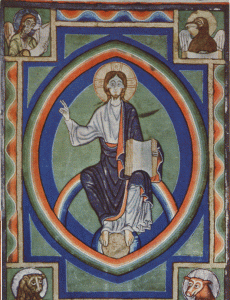This article has been dealing with the last book in the New Testament, that is Revelation or the Apocalypse. It is one of the most difficult to understand because it abounds in unfamiliar and extravagant symbolism, which at best appears unusual to the modern reader. Symbolic language is one of the chief characteristics of apocalyptic literature, of this which is truly an outstanding example. It contains an account of visions in symbolic and allegorical language borrowed in part from the Old Testament, especially Ezekiel, Zechariah, and the apocalyptic Book of Daniel. Whether the visions presented were real experiences of the author or simply literary convention employed by him is an open question.
Though Revelation is eschatological – ultimate salvation and victory are said to take place at the end of the present age when Christ will come in glory at the Parousia – the book presents the decisive struggle of Christ and his followers again Satan and his cohorts as already over. Christ’s overwhelming defeat of the kingdom of Satan has ushered in the everlasting reign of God. Even the forces of evil unwittingly carry out the divine plan, for God is the sovereign Lord of history.
The Book of Revelation had its origin in a time of crisis, but it remains valid for Christians of all time. In the face of evils from within and without, the Christian can confidently trust in God’s promise to be with the church forever.
Rome is a central and consistently negative image in the book. This view of the Roman government stands in sharp contrast to the rest of the New Testament, where Rome is seen as the protector of Christianity. In the early days of missionary activity, Roman judges protected Christians from Jewish mobs. It was Roman justice to which Paul turned in his time of need. As a result, the apostles, it seems, urged submission to Rome. But in Revelation, the attitude is quite different. Rome is seen as a whore, drunk with the blood of many Christians and deserving nothing but destruction.
This shift in attitude is due to one thing – Caesar worship. Although Roman rulers were, for a long time, considered divine, their centrality in Roman civil religion was not enforced until the end of the first century. Then it became obligatory for citizens all across the Roman Empire to appear once a year before a magistrate to burn a pinch of incense and declare, “Caesar is Lord.” Thus the negative bend in Revelation.

